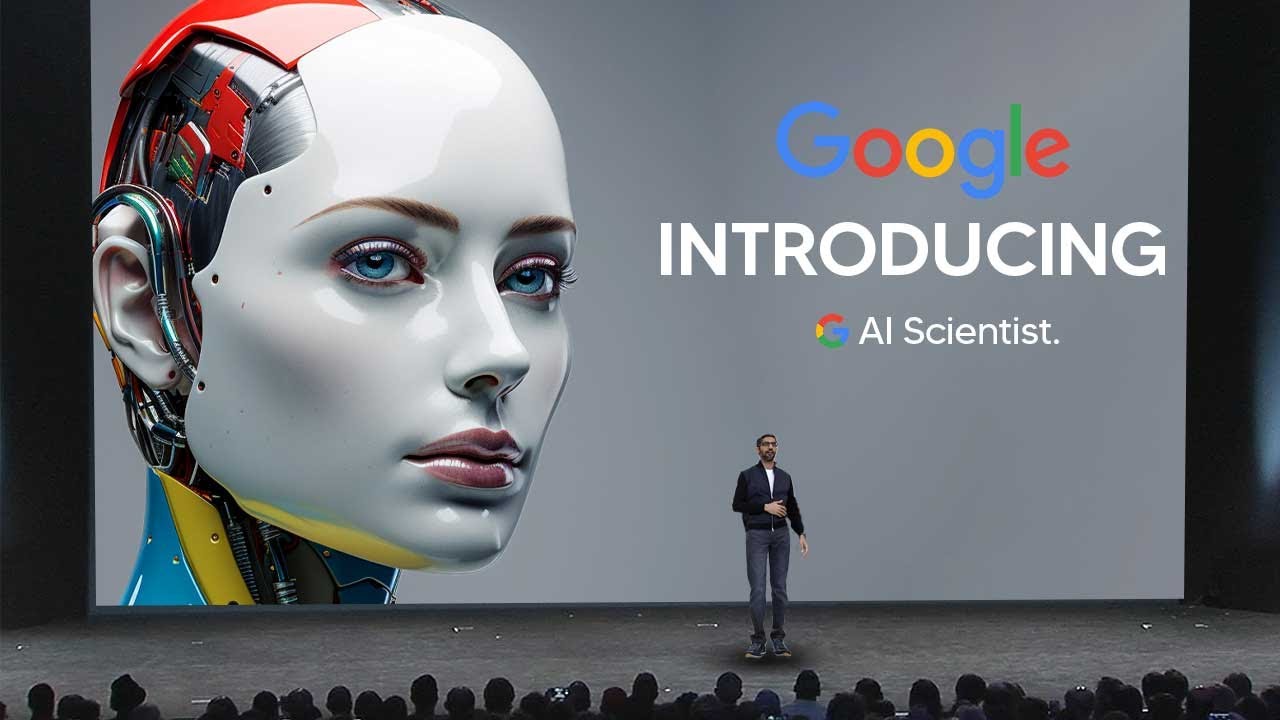The video highlights Google’s new AI Co-Scientist, a multi-agent system designed to assist researchers in generating and refining hypotheses, which has already shown promise in drug repurposing for conditions like acute myeloid leukemia and liver fibrosis. By leveraging advanced reasoning and rapid data processing, this AI has the potential to revolutionize scientific research and improve treatment outcomes for complex diseases.
The video discusses Google’s new AI Co-Scientist, a groundbreaking multi-agent AI system designed to assist scientists in generating hypotheses and research proposals. This AI acts as a virtual collaborator, capable of understanding complex scientific topics and suggesting new research directions. The system comprises various specialized agents, including generation, reflection, evolution, meta-review, and ranking agents, which work together to create, evaluate, and refine research ideas. The AI Co-Scientist continuously improves its outputs through a process of self-critique and iterative reasoning, leveraging web searches and scientific databases to validate its findings.
The architecture of the AI Co-Scientist allows it to flexibly scale and enhance scientific reasoning toward specified research goals. The supervisor agent manages the workflow, assigning tasks to specialized agents and allocating resources. This design enables the system to generate detailed research overviews and hypotheses, which are then subjected to a rigorous evaluation process. The AI’s ability to utilize test time compute allows it to evolve and improve its hypotheses over time, leading to increasingly refined research proposals.
Real-world applications of the AI Co-Scientist demonstrate its potential to revolutionize scientific research. For instance, it has been used to identify new uses for existing drugs in treating acute myeloid leukemia, significantly speeding up the drug repurposing process. In laboratory tests, one of the AI-suggested drugs showed promise in reducing cancer cell growth, highlighting the AI’s capability to enhance cancer research and potentially lead to more effective treatments with fewer side effects.
Another example involves the AI’s role in studying liver fibrosis, where it helped identify drugs that could reduce liver scarring. The AI Co-Scientist’s ability to analyze and suggest effective treatments showcases its potential to accelerate the discovery of solutions for complex medical conditions. Additionally, the AI independently matched years of human research on antimicrobial resistance in just two days, demonstrating its efficiency and capability to process information rapidly.
The video concludes by emphasizing the transformative impact of AI on scientific research, suggesting that future iterations of the AI Co-Scientist could further enhance our understanding of complex diseases like cancer and Alzheimer’s. The speaker expresses optimism about the potential for AI to help overcome significant health challenges, envisioning a future where debilitating diseases could be addressed more effectively and efficiently than ever before. The advancements in AI technology could lead to breakthroughs that change the landscape of medical research and treatment.
